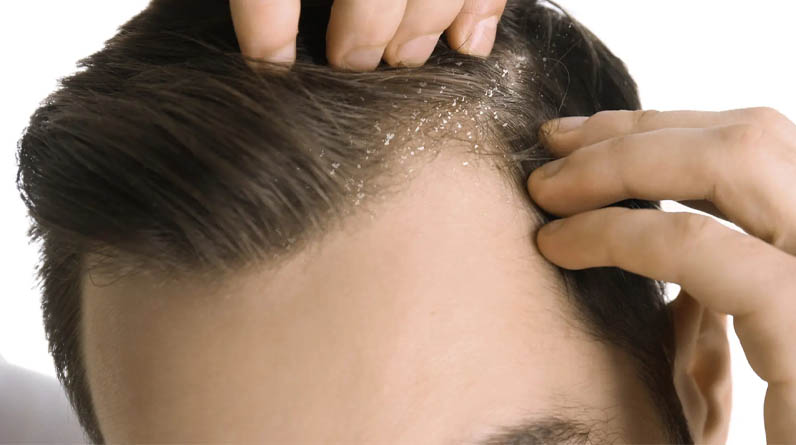The basic cause of dandruff is the shedding of dry skin flakes from the scalp, which can be seen as white or yellow flakes. It’s possible that you spotted some of these flakes on your shoulders or in your hair. It’s possible that dandruff is also the cause of your itchy scalp. It’s a common issue, but the solution isn’t as straightforward as it would first appear. Dandruff is actually rather difficult to identify because it overlaps with seborrheic dermatitis, which is a persistent form of eczema, and other skin problems that lead to a scaly scalp. Dandruff can be caused by a number of different factors, including genetics, diet, and lifestyle. The information that you require is detailed below.
The question of whether dandruff should be classified as a sickness or a disorder is still being discussed even in modern times. In the physiological spectrum of scaling, around 487,000 cells/sq cm get released naturally following detergent treatment, and this quantity reaches up to 800,000 cells/sq cm during dandruff and seborrhoeic dermatitis, respectively. On the other hand, dandruff does not cause inflammation in the body. There is still a lot of research that needs to be done in order to figure out what exactly causes dandruff to occur within the normal physiological spectrum of scaling.
Symptoms
Flakes and an itchy, scaly scalp are the main symptoms of dandruff. White, oily flakes typically accumulate in your hair and on your shoulders and often get worse during the fall and winter months, when the air is dry.
Additional symptoms can include:
- erythema, which is red patches on the skin of the scalp, and sometimes on the face
- eyebrow dandruff
- hair loss
- dry flakes on the skin of the face
Treatment
The itching and flaking associated with dandruff can nearly always be managed. Regular cleaning with a moderate shampoo to decrease oil and skin cell buildup is the first step in treating mild dandruff. If that does not work, try a medicated shampoo for dandruff. Some individuals can tolerate using a medicated shampoo two to three times per week, in addition to regular shampooing on other days. People with drier hair would benefit from shampooing less frequently and using a hair or scalp conditioner that adds moisture.
Medicated and non-medicated hair and scalp products are available as solutions, foams, gels, sprays, ointments, and oils. You may need to try multiple products before discovering the one that works best for you. Moreover, you will likely require repeated or prolonged treatment.
If any product causes itching or stinging, discontinue use. Seek emergency medical treatment if you develop an allergic reaction, such as a rash, hives, or difficulty breathing.
Shampoos for dandruff are categorised according to the medication they contain. Some are available in prescription-strength formulations.
- Zinc pyrithione shampoos (DermaZinc, Head & Shoulders, others). These include zinc pyrithione, an antibacterial and antifungal agent.
- Shampoos containing tar (Neutrogena T/Gel, Scalp 18 Coal Tar Shampoo, etc.). Coal tar reduces the rate of skin cell death and flaking on the scalp. If you have light-colored hair, this shampoo could potentially discolour it. It can also make the scalp more photosensitive.
- Shampoos formulated with salicylic acid (Jason Dandruff Relief Treatment Shampoo, Baker P&S, others). These items help prevent scaling.
- Selenium sulphide shampoos (Head & Shoulders Intensive, Selsun Blue, others). These contain antifungal medication. Because these products can darken the hair and scalp, use them as instructed and thoroughly rinse after shampooing.
Ketoconazole shampoos (Nizoral Anti-Dandruff). This shampoo is designed to eliminate dandruff-causing fungus on the scalp. - Shampoos containing fluocinolone (Capex, Derma-Smoothe/FS, etc.). These treatments contain corticosteroids to help reduce irritation, itching, and scaling.
Alternate between two types of dandruff shampoos if one type of shampoo is initially effective but then loses its effectiveness. Once the dandruff is under control, use the shampoo less frequently for maintenance and prevention.
Follow the instructions on each shampoo bottle you test. Some products must be kept on for a few minutes, but others must be rapidly rinsed off.
If you have consistently used medicated shampoo for several weeks and still have dandruff, consult your physician or dermatologist. You may require a shampoo with a prescription or a steroid lotion.
Read More Like This Here

